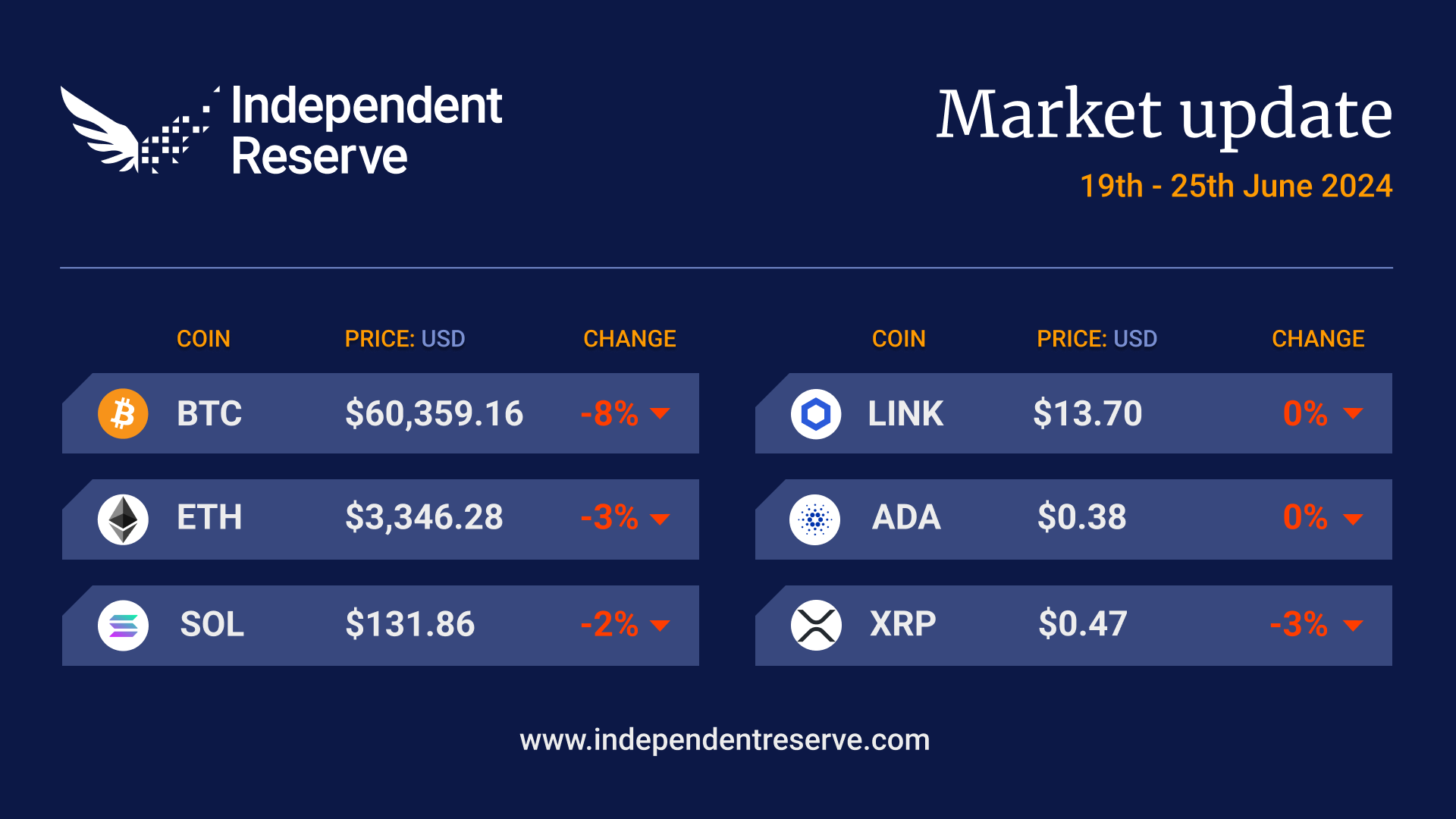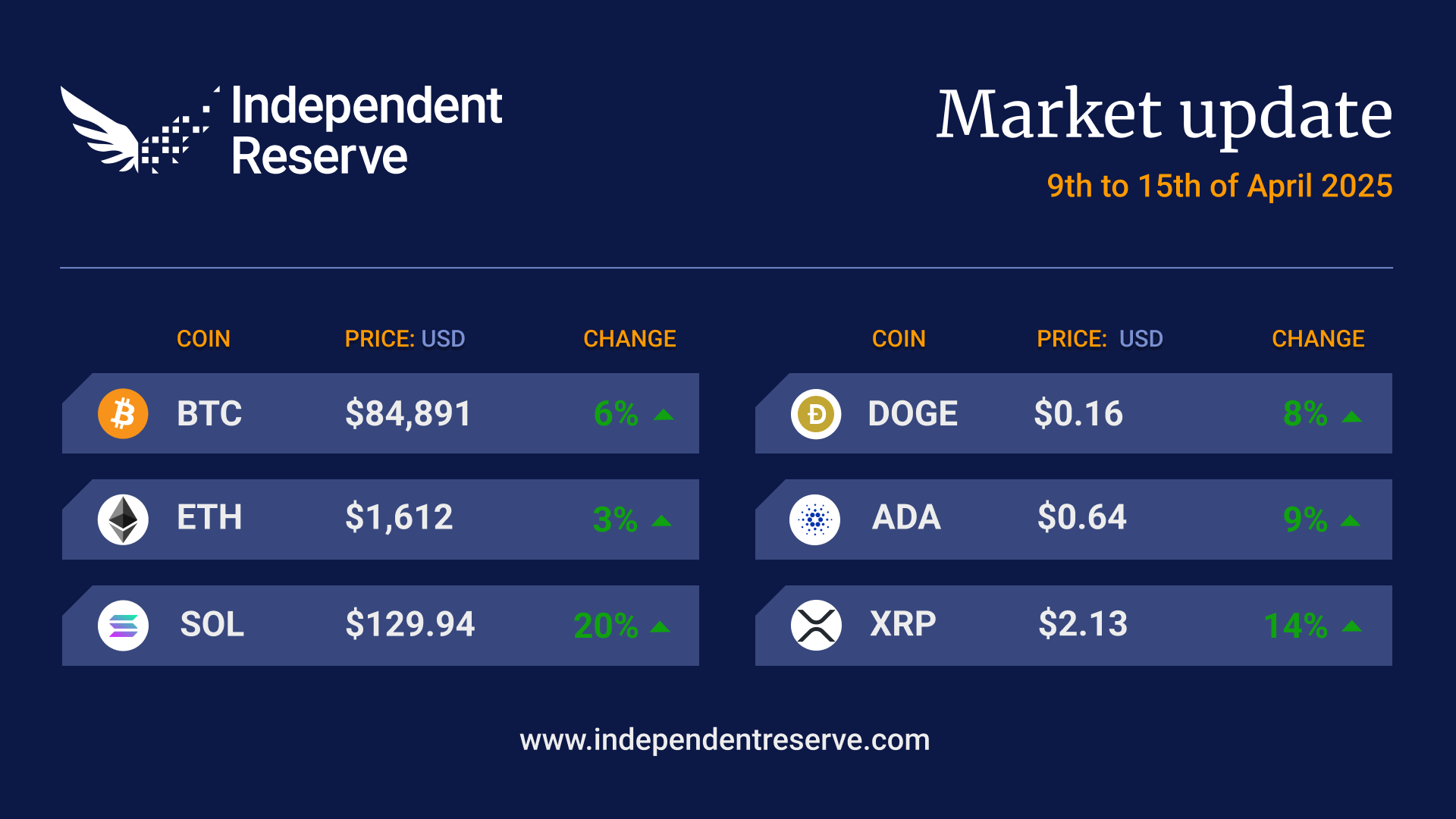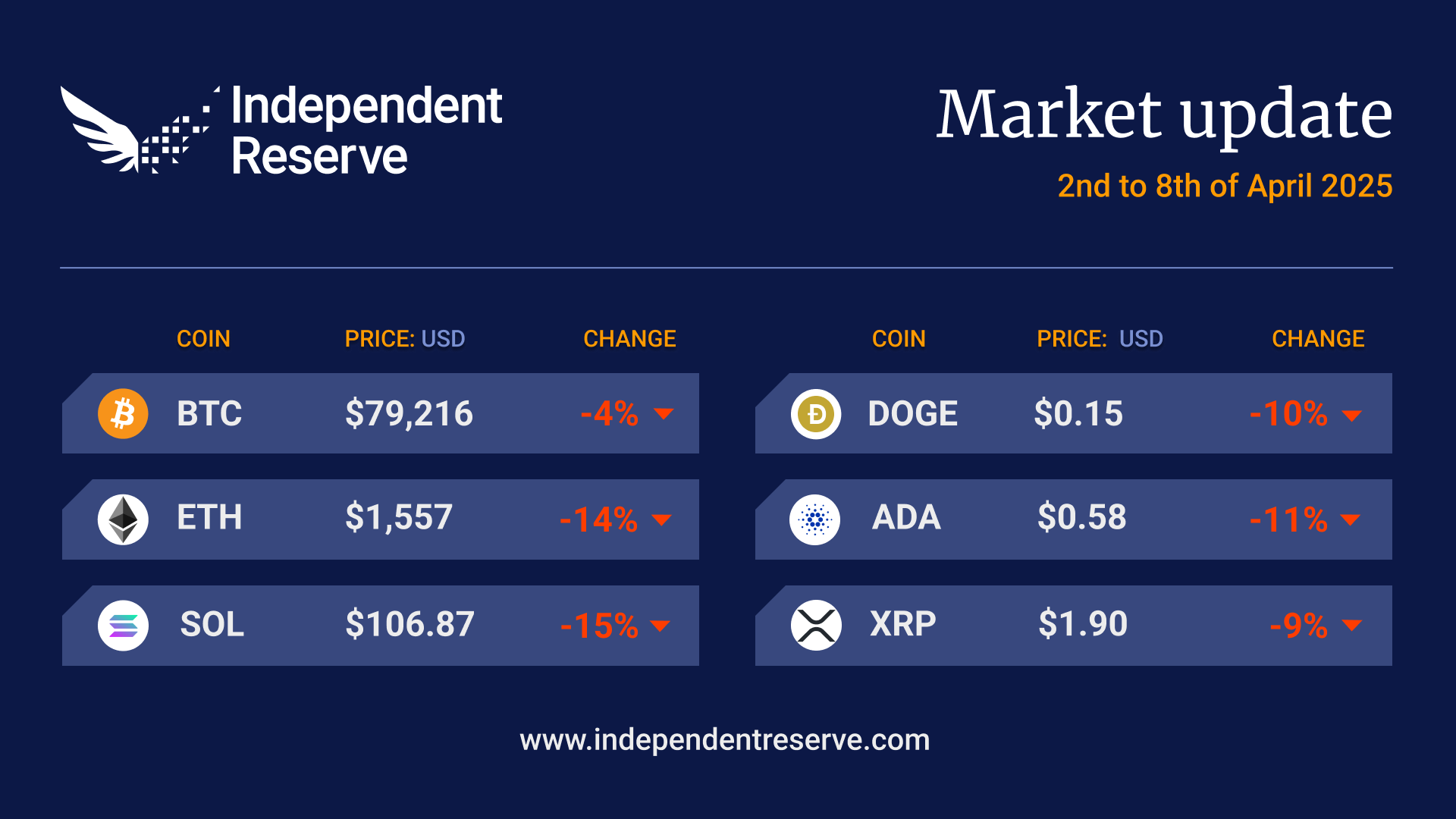In Markets
Bitcoin spent most of the week trading slowly down from A$100.6K (US$66.3) to A$97K (US$64K) before taking the elevator down A$7K (US$4K) yesterday as news emerged that Mount Gox would finally start to repay $9.4B in Bitcoin and Bitcoin Cash to creditors from next month. The dump calls into question the efficient market hypothesis in relation to crypto given the repayments have been known about for a very long time and have caused a number of drops in the past year. But even prior to the latest news things were looking downbeat though with Bitcoin whale activity dropping 40%, futures traders turning bearish, and Santiment’s weighted sentiment index negative for a month straight. At the time of writing Bitcoin was down 8% on the same time last week at A$90,462 (US$60.3K) while Ethereum was down 3% to A$5,030 (US$3,356). Solana was down 2%, XRP (-3%), Dogecoin (-8.8%), and Shiba Inu (-5%) while Cardano was flat (-0%). The Crypto Fear and Greed Index is at 51 or neutral.

From the IR OTC Desk
The broader cryptocurrency market has highlighted the Mt. Gox announcement as the catalyst for softer trading this week.
“The Rehabilitation Trustee has been preparing to make repayments in Bitcoin and Bitcoin Cash under the Rehabilitation Plan,” said trustee Nobuaki Kobayashi.
This aligns with the previous (court-set) deadline of October 2024 for civil rehabilitation.
While this announcement has been a significant catalyst of price depreciation over the last 24-48 hours, the previous five trading sessions are perhaps a better representative of broad cryptocurrency market sentiment—for the time being.
For a while now (post the US spot ETF genesis), we have spoken at length about the institutionalisation of BTC and the expectation that the asset class will now be in direct competition with other exchange-traded, high-beta risk assets. In general, it is becoming easier for the marginal investor to trade in/out of BTC. This can affect short-term pricing as capital can be ‘flighty’.
BTC is continuing to craft its role as a global commodity. For now, it is critical to monitor ETF in/outflows, political speak, precious commodity prices, .dxy, oil, and long-end US bond yields to gauge risk sentiment. Also included in this list are AI and BTC mining stocks – direct capital competitors to the BTC token in the short term. The landscape is maturing!
In the economic calendar this week, the Australian monthly CPI indicator (May) as well as the US PCE inflation index (May) will be the most important data points. With the recent rhetoric from the Reserve Bank of Australia (RBA) being one of data dependency, the RBA will likely give additional weighting to the May CPI release.
US PCE inflation remains the preferred measure of inflation for the US Federal Open Market Committee (FOMC).In their most recent communication, the FOMC anonymous ‘dot plot’ survey suggested one 25bp federal funds rate reduction for calendar year 2024. Currently, the futures market is allocating a 70% chance that this policy change will occur at the 18th September meeting.
Economic releases this week are particularly light and include:
In Australia (AEST)
- Wednesday 11:30am AU Monthly CPI Indicator (May)
- Thursday 11:00am AU Consumer Inflation Expectations (June)
In the US (AEST)
- Thursday 10:30pm US GDP (Q1)
- Friday 10:30pm US PCE Inflation (May)
On the OTC desk, USDT continues to trade under par – this has been the case for several weeks now. Historically, USDT trading under par has been a sign of softer cryptocurrency sentiment and vice versa. The premise being that USDT is generally used as foundational liquidity for decentralised transactions on ETH. This week, USDT has remained below par; alts have traded softly.
In general, however, trading volumes across the OTC desk have been building and remain elevated on a historical basis. The underlying utility of the flow continues to morph with broad cryptocurrency and blockchain adoption spreading across industries. This has seen stable coin volumes increase rapidly. Major flows (BTC and ETH) have remained steady, while we continue to wait for better trading conditions in alts.
In Headlines
Australia’s third Bitcoin ETF
With The first Bitcoin ETF offered on the ASX, VanEck’s VBTC has amassed A$3.93M (US$2.61M) in assets following its fairly muted launch last week (there are two others on CBOE). VanEck deputy head of investments and capital markets Jamie Hannah said “We have had a significant amount of retail and professional investors express strong interest in getting Bitcoin exposure through ASX,” he said. In the US, the Bitcoin ETFs saw a total outflow of US$545 million (A$819M) last week.
Could Dell Computers add Bitcoin to its treasury?
Micheal Dell, the billionaire founder of Dell computers, tweeted about Bitcoin saying “scarcity creates value” and then retweeted a reply by Microstrategy’s Michael Saylor saying “Bitcoin is digital scarcity”. As a result of this social media exchange there is now fevered speculation that Dell might tip some of its billions into Bitcoin. Meanwhile Microstrategy has completed the purchase of 11,931 Bitcoin using the proceeds of its latest convertible notes sale.
Crypto and tech industry for Trump?
Gemini co-founders Cameron and Tyler Winklevoss have contributed US$1 million (A$1.5M) in Bitcoin each to the presidential campaign of crypto convert Donald Trump (and were refunded partially for exceeding the max contribution limit). In a long post the twins argued that Trump was a necessary answer to the Biden administration’s war on crypto. “President Donald J. Trump is the pro-Bitcoin, pro-crypto, and pro-business choice,” claimed Tyler. “It’s time for the crypto army to send a message to Washington.” Ark Invest CEO Cathie Wood has also endorsed Trump saying she believes he will be better for the economy. Real Vision founder Raoul Pal says that no matter who becomes president, asset values will likely rise post-election thanks to all the election promises and handouts. “The backend quarter of an election year is a true banana zone for all assets. It always is. So you know that you’ve got a very, very, very high probability that by autumn things are utterly ripping,” Pal said.
Solana reinvents L2s?
Solana devs Light Protocol and Helius Labs have launched a new way for applications to scale cheaply using ZK Compression. Essentially it enables devs to store certain types of data using the blockchain’s cheaper ledger space rather than more expensive account space. “Take an airdrop to 1,000,000 users. This today would cost over US$260,000 (A$391K) for the state alone. Now, it’s US$50 (A$75K) – 5,200x cheaper,” wrote Helius Labs founder Mert Mumtaz. However, Ethereum proponents argue the new tech is essentially just an L2 in disguise.
Ethereum ETFs slowly approacheth
The slow march toward the launch of Ethereum ETFs in the US continued with all eight issuers now having submitted revised S-1 registration statements to the SEC. VanEck’s filing revealed it will set a 0.2% management fee, which is close to Franklin Templeton’s 0.19%. BlackRock is yet to see a fee for either main offering but Bloomberg ETF analyst Eric Balchunas said the competitor fees put “a touch of pressure on BlackRock to stay under the 30bps at least.” BlackRock is also launching a much cheaper Mini Ether Trust and Nate Geraci, president of the ETF Store, suggests it could have a significant impact.
Kang’s bearish take on Ether ETFs
Crypto investor Andrew Kang from Mechanism Capital believes the forthcoming ETH ETFs will only attract about 10% to 15% of the Bitcoin ETF flows and about US$500M to US$1.5B (A$752M to A$2.25B) in “true” net buying. He believes that TradFi sees ETH as a tech asset rather than a macro asset and that “in reality, it has much less buy-in as a key portfolio allocation for many large groups of non-crypto native capital.” Kang argues that ETH could fall up to 30% from current prices after launch and for the cherry on top he also believes the ETH/BTC ratio will continue to fall over the next year.
Ether ETFs have already had an impact
The SEC investigation into whether or not Ethereum is a security has officially been closed. Lawyer for Ethereum infrastructure provider Consensys, Laura Brookover, argues the SEC didn’t drop the investigation willingly, but had no other option given pending legal action and the fact that it approved the ETFs under the commodity rules. Kraken is also fighting an uphill battle against the SEC In a June 20 hearing Judge William Orrick said he was “inclined to deny” Kraken’s motion to dismiss the case, saying it was “plausible” digital assets were offered and sold as investment contracts on the crypto exchange.


